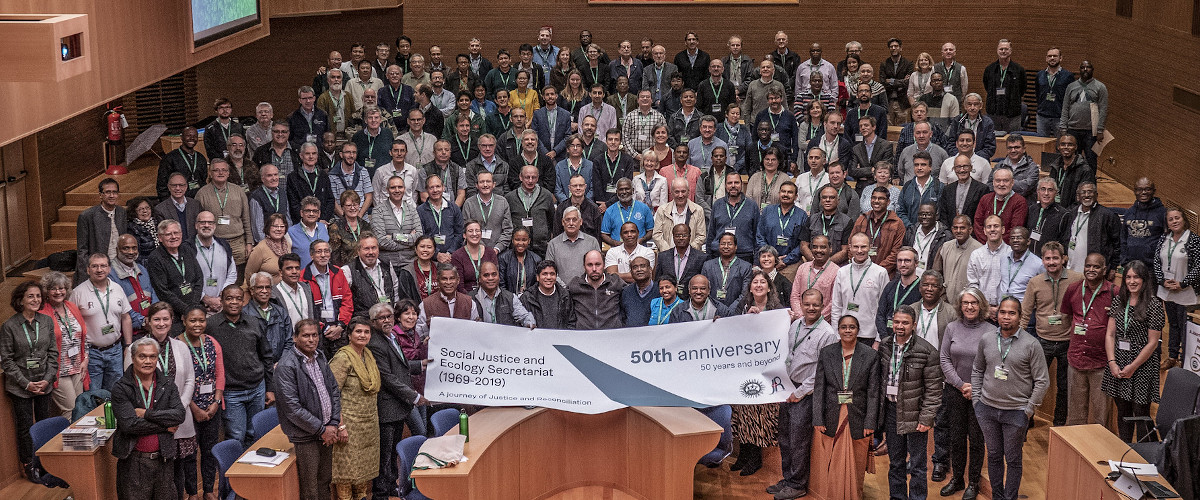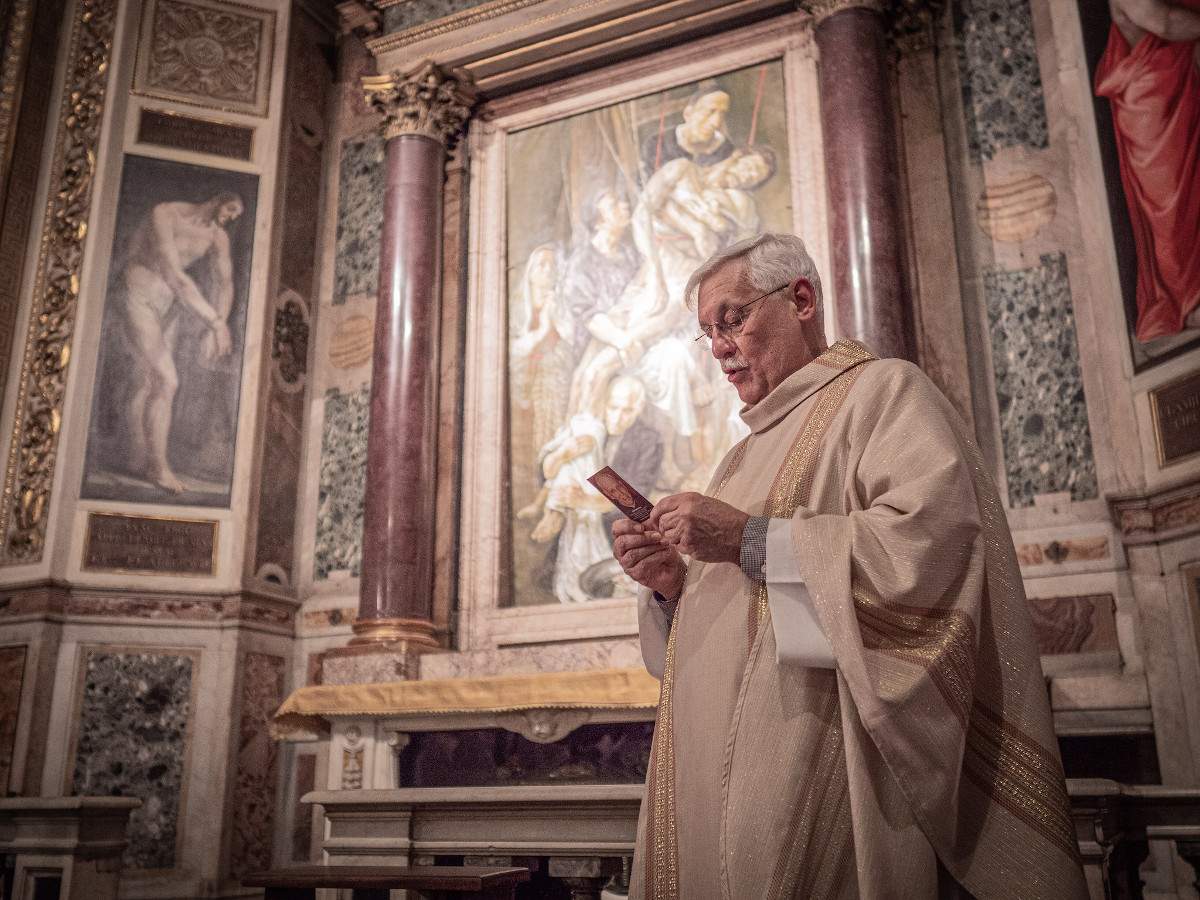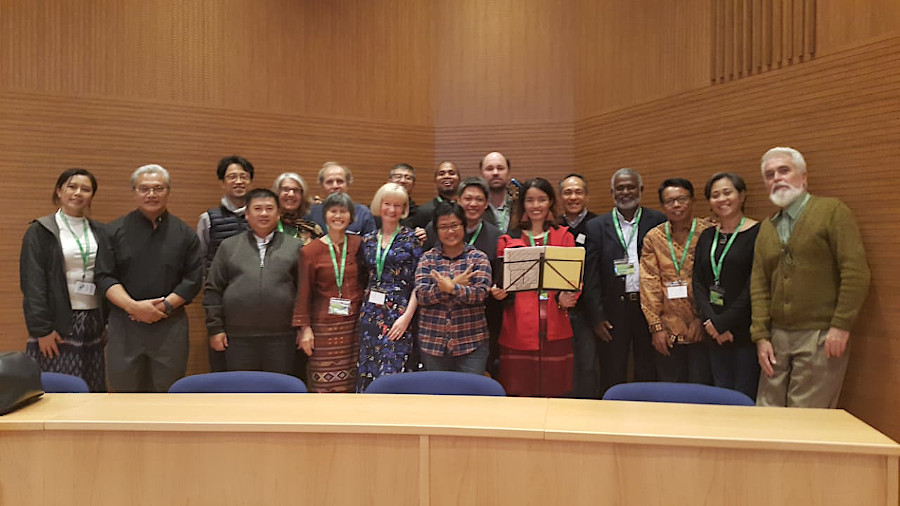
“We dream of a just world, structurally just, in which all human beings find the conditions for a dignified and secure life, in which cultural variety is an expression of the multiform face of God, reflected in all facets of his creation,” said Fr General Sosa at the Mass that concluded the congress held from November 4 to 8.
He pointed out three “urgent” commitments: to promote “more just economic, social and political relations,” to strengthen in the Church and in society “the equal and adequate participation of women in projects and processes,” and to eradicate “all kinds of abuses in society, in the Church and in our apostolic works”.
The five-day congress, according to Fr Sosa, was a reminder “of the centrality of the spiritual dimension of our commitment to social justice and integral ecology” and the “inalienable role of personal and community discernment so the Spirit may transform our lives and guide our action”. He added that the congress evinced the need for collaboration among the Society and with many others who share the same path, deepening their identity as collaborators in Christ’s mission. During the week, Father General met with the women collaborators, who affirmed the need for greater female participation.

The superior of the Jesuits recalled that in the audience granted to the participants of the congress, Pope Francis said: “It is not enough to approach and accompany the victims of all kinds of injustices, but we need a true cultural revolution, a transformation of our collective gaze, of our attitudes, of our ways of perceiving ourselves and of placing ourselves before the world.”
The Pope received the members of the Social Justice and Ecology Secretariat on November 7 in the Clementine Hall of the Vatican Apostolic Palace. He urged them to always remain close to the most vulnerable and to be hopeful. “All of us are witnesses that the humblest, the exploited, the poor and excluded can and do achieve a lot,” said the Pope. He told them that the social apostolate is not to solve problems, “but to promote processes and to encourage hope”.
“We felt grateful for being able to meet Pope Francis. It was a kind of confirmation and a blessing to have the Pope’s support in doing God’s mission in social justice and ecology,” said Fr Adrianus Suyadi SJ, Secretary for Social Ministries of the Jesuit Conference of Asia Pacific (JCAP).
On the last day of the congress, the Secretariat published a letter to an anonymous “companion martyr,” one of the 57 Jesuits murdered in these 50 years in the service of the Gospel. Earlier in the week, it released a publication honouring these Jesuits as “torches of light and hope”. The 128th issue of Promotio Iustitiae was also released in commemoration of the golden anniversary. It includes 11 articles on the works and commitments of the six Jesuit Conferences.
In the end, the participants took stock of the five “processes” that emerged during the discussions, both in the assembly and in the different working groups, and which now need to be deepened: personal and community conversion, the transformation needed for society, the need for greater collaboration and more effective networking, common and synodal discernment, and finally, the importance of promoting a new narrative that includes the marginalised and supports change.
The 20 JCAP participants in the congress felt that the cultural, religious, socio-economic and political diversity of Asia Pacific provides an opportunity to be creative in their social ministries. They also underscored collaboration and networking on both regional and global levels in order to address issues on ecology, migration and integral human development. They took cognisance of the need to integrate the works of the different social ministries, such as linking Jesuit Refugee Service with the social apostolates in Myanmar, and collaboration with education and youth sectors on raising awareness in ecology.
As Fr General Sosa has said several times, the Universal Apostolic Preferences are not about what we do, but how we do. And throughout the congress, the JCAP delegates were repeatedly reminded of the importance of diving deep into the spiritual roots of our service through discernment and spiritual conversations.
Related story: SJES: A journey of justice and reconciliation







